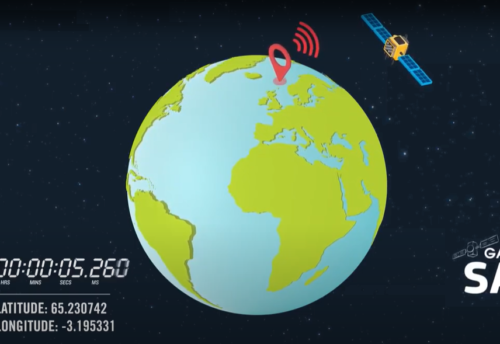
- 06/20/2022
GIC Mexico organizes the webinar EGNSS: Services and applications in Geomatics
The Galileo Information Center presented the space program of the European Union Galileo and its applications in the field of Geomatics to the academic community of Central America
On the 7th of June 2022, the GIC Mexico organized an online webinar in coordination with the National University of Costa Rica, the University of San Carlos of Guatemala and the National University of Nicaragua.
The main objective of the webinar, which was attended by guests from several countries (Costa Rica, Ecuador, Guatemala, Honduras, Mexico, Nicaragua and the Dominican Republic) from very diverse entities, such as universities, companies and research institutes, was to put in contact students in the field of geomatics (topography, geodesy, geography) with companies and specialists in the use of Galileo technology, as well as presenting one of the European satellite navigation programmes: Galileo.
After a brief introduction and welcome by Mr. Luis Cuervo, head of the Galileo Information Centers in Latin America and on behalf of the European Commission and the Directorate General for Defence, Industry and Space, Elena Megías, coordinator of the Galileo Information Center in Mexico, Central America and the Caribbean, was in charge of presenting the GIC, its objectives and the interesting activities it carries out, as well as the Horizon Europe program, a European Union program for Research and Innovation, describing the funds available for this type of projects and the requirements to be able to access this.
On the other hand, José Luis Martín from the GNSS Service Center (GSC) presented the characteristics and services of the Galileo program, and the activities carried out in the center itself, whose main function is to be the interface with the Galileo user community.
Finally, David Aguilar (Geotecnologias S.A) dedicated his presentation to the advantages of using Galileo in the field of Geomatics, highlighting that the use of multifrequency provides greater coverage and improved performance in harsh environments, significant benefits for a faster TTFF , convergence and elimination of the effect of the ionosphere and greater availability, continuity and reliability. David Aguilar also highlighted that with the Galileo High Precision Service whose initial services will be launched shortly, high precision corrections will be available worldwide and free of charge (clocks, orbits and biases) using a target precision of about 20 cm (horizontally).
Holding this interesting event has allowed the GIC to promote Galileo and the benefits of its use in the field of geomatics to the academic community of Central America, a key sector to start generating interest and knowledge



